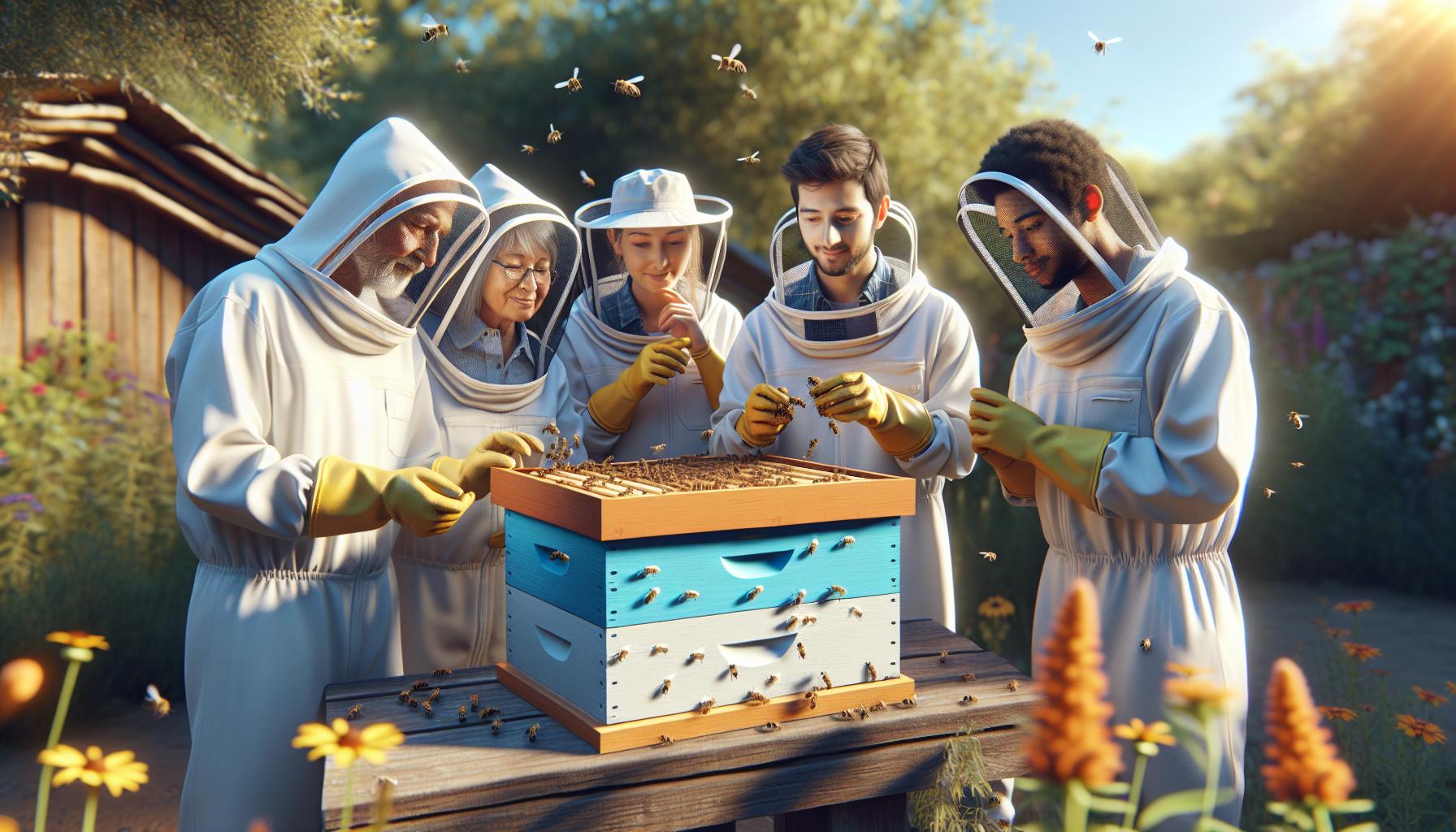Beekeeping is more than just a hobby; it's a rewarding way to connect with nature while contributing to the environment. With the growing interest in sustainable practices and the importance of pollinators, many people are eager to learn the art of beekeeping. Local classes offer a perfect opportunity to dive into this fascinating world, whether you're a complete novice or looking to expand your skills.
Finding beekeeping classes nearby provides hands-on experience, expert guidance, and a supportive community of fellow enthusiasts. From understanding hive management to harvesting honey, these classes cover essential topics that make beekeeping accessible and enjoyable. Embracing this journey not only nurtures a passion for bees but also supports their crucial role in our ecosystem.
Overview of Beekeeping Classes
Beekeeping classes provide practical knowledge for beginners and experienced beekeepers alike. They often include hands-on training, allowing participants to apply their skills in real-world situations.
Common topics covered include:
-
Hive Management: Learn how to set up and maintain healthy beehives.
-
Honey Harvesting: Discover the best methods for collecting, processing, and storing honey.
-
Bee Biology: Understand the life cycle and behavior of bees to manage colonies effectively.
-
Pest and Disease Management: Gain knowledge on identifying and controlling common threats to bee health.
Local beekeeping classes also foster a sense of community. Networking with experienced beekeepers and fellow students enhances the learning process and provides ongoing support. Whether online or in-person, these classes offer valuable insights from seasoned professionals.
Benefits of Taking Beekeeping Classes
Skill Development
Beekeeping classes focus on skill-building, ensuring participants gain confidence in hive management, pest control, and honey harvesting. Hands-on training reinforces lessons, while instructors provide guidance to help students navigate challenges effectively.
Environmental Impact
Learning beekeeping contributes to pollinator health and ecosystem sustainability. Classes emphasize the crucial role bees play in biodiversity and food production. Educated beekeepers can spread awareness and encourage pollinator-friendly practices in their communities.
Finding Beekeeping Classes Near You
Beekeeping classes are available through various resources, including online platforms and local organizations.
Online Resources
For those who prefer learning at their own pace, online resources provide excellent educational opportunities:
-
YouTube: Features instructional videos from experienced beekeepers.
-
Educational Websites: Platforms like the American Beekeeping Federation offer courses and guides.
-
Social Media: Facebook groups and Instagram pages connect learners with expert advice and local events.
Local Community Centers
Many community centers host in-person beekeeping classes. Benefits include:
-
Expert Instructors: Learn from seasoned beekeepers with hands-on experience.
-
Networking Opportunities: Connect with fellow beekeepers to share insights and advice.
-
Real-World Experience: Gain practical skills by working directly with hives.
Community centers provide a welcoming environment for beginners and experienced beekeepers alike.
What to Expect in Beekeeping Classes
Curriculum Overview
Beekeeping classes typically cover:
-
Bee Biology: Understanding bee behavior and life cycles.
-
Hive Management: Best practices for hive maintenance and health.
-
Honey Harvesting: Safe and efficient honey extraction techniques.
-
Pest and Disease Management: Preventative measures and treatment options.
-
Seasonal Management: Adapting beekeeping practices to changing seasons.
Structured lessons help participants build a solid foundation in beekeeping.
Hands-On Experience
Practical training is a key component of beekeeping classes. Activities often include:
-
Hive Inspections: Assessing colony health and hive conditions.
-
Setting Up Hives: Proper installation and maintenance techniques.
-
Honey Extraction: Learning to harvest and process honey efficiently.
-
Bee Handling: Gaining confidence in working safely with bees.
This hands-on approach ensures that students feel prepared to start or enhance their beekeeping journey.
Conclusion
Beekeeping classes provide an excellent opportunity to deepen your connection with nature while supporting vital pollinator populations. Through expert instruction and hands-on training, participants develop essential skills in hive management and honey harvesting.
Beyond gaining knowledge, beekeeping classes help build a strong community of like-minded individuals. With both online and in-person options available, aspiring beekeepers can find a course that fits their needs and schedule. This rewarding hobby not only benefits individuals but also contributes to environmental sustainability.
Frequently Asked Questions
What is beekeeping and why is it rewarding?
Beekeeping involves maintaining bee colonies for honey production and pollination. It is rewarding because it fosters a deeper connection with nature, supports biodiversity, and offers practical skills and community engagement opportunities.
Do I need prior experience to take beekeeping classes?
No prior experience is required. Classes cater to all skill levels, from beginners to experienced beekeepers looking to expand their knowledge.
What topics are covered in beekeeping classes?
Beekeeping classes typically cover hive management, honey harvesting, bee biology, and pest and disease control. Hands-on training ensures that participants gain practical experience alongside theoretical knowledge.
Where can I find local beekeeping classes?
Local beekeeping clubs, agricultural extension offices, and community centers often offer classes. Online resources can also provide virtual workshops and instructional materials.
How do beekeeping classes promote environmental awareness?
By educating participants on the importance of pollinators, beekeeping classes encourage sustainable practices that support local ecosystems and biodiversity.



